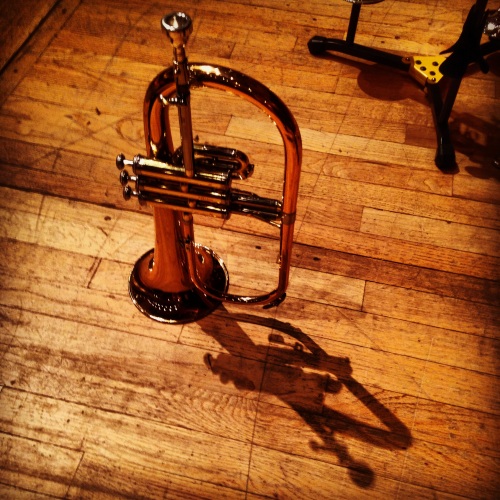David Zerkel Master Class Quotes (Part 1 of 3)
Andrew Hitz
In September, we were honored to welcome world-renowned tuba player and pedagogue David Zerkel to George Mason University. David is currently the tuba and euphonium professor at the University of Georgia, where his students regularly win auditions of all kinds. He is also a former member of the US Army Band here in Washington, DC.
The master class he presented was so good that I took down almost 90 quotes! He is a master teacher and communicator and he left my studio energized and inspired. Because there were so many quotes, I am breaking them up into three posts. Here is the first installment!
(Click here for Part 2 and Part 3)
- "When you played the theme you had a very tentative approach to making music. It was like you were tiptoeing through the melody."
- "You would have 15 different versions of breathing and blowing if you were to ask every wind professor at this school."
- "Breath control can be distilled down into four words: blow until you stop."
- "Your breath should be the same every single time you pick up the instrument."
- "Your brain is brilliant. Your lungs are stupid lungs."
- "If you spend half of your time having your brilliant brain sending your stupid lungs instructions you won't have the ability to make music."
- "Blow to a spot that's right here at the top of your bell. Keep your tone a dial tone."
- "Can we get a better connection between the C and the D? When you're shifting it's an automatic transmission. You don't have to put the clutch down to shift notes."
- "Whether you're playing one note in one breath or 32 notes in one breath, your exhale is going to be exactly the same."
- "I always want to make my tuba playing like singing, because singing is the most natural instrument."
- "A 4-year-old at a birthday party sings perfect phrases. It's great."
- "Singing is a really simple exhale. That's what singing is."
- "Go for your best sound right at the beginning of every note."
- "Blow until you stop. Once you initiate don't stop."
- "16th notes and 32nd notes are not fast, they are melodic."
- "If you do the blow until you stop, the 16th note won't sound different than the long note."
- "Play a repugnantly bright B-flat or C when you're 'topping out' on the horn."
- "Feel free to use a lot of air."
- "For every octave you go up, you double your mph. (Pedal C is 15 mph. Low C is 30 mph. Middle C is 60 mph. C above the staff is 120 mph. Screech C is 240 mph.)"
- "Tuba has two primary functions: foundation and time."
- "When you're playing an audition, make it really easy for a committee to sing their part, because I promise you that's what they're doing. That's how they can tell if you're good at context."
- "Take the Fountains of Ramp vamp up a minor third and then bring it down chromatically."
- "I always start with what I can do because starting with what I can't do sucks."
- "This time try and make the low E less involuntary when you finish it."
- "One of the things that's hard for tuba players, actually it's hard for everyone, is that you need to sell the concept of time when you are playing long notes. It's hard."

